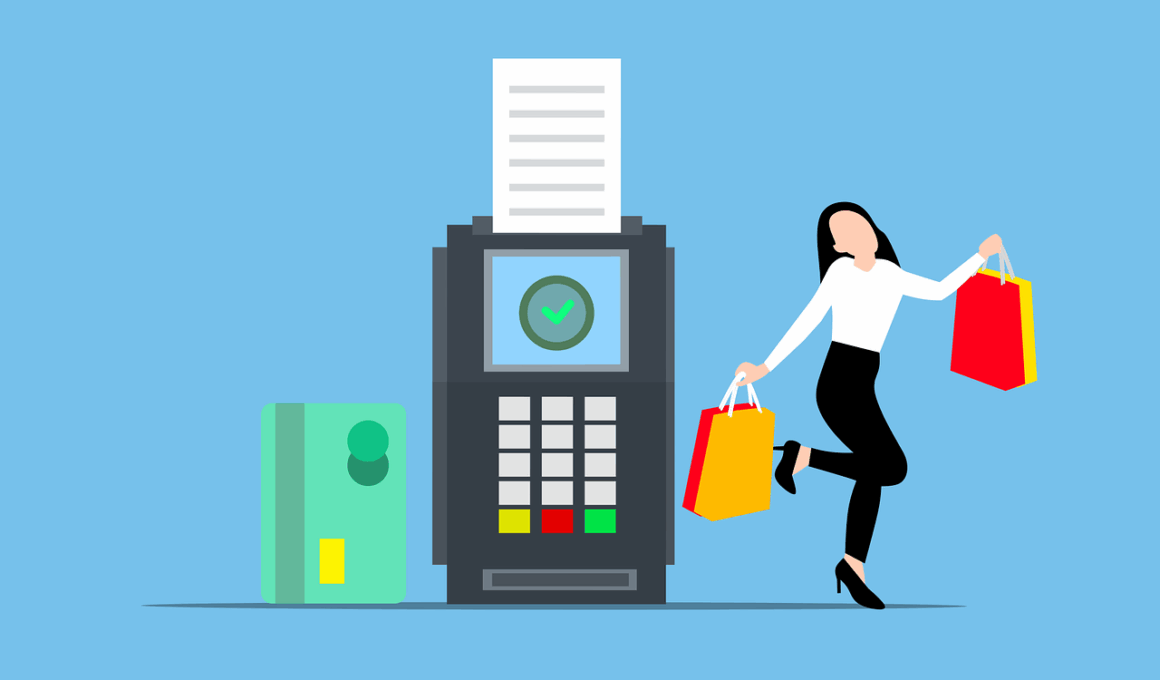Effective Use of POS Systems as Retail Marketing Tools
Understanding the role of Point of Sale (POS) systems is crucial in modern retail marketing. These systems serve as the first point of contact between customers and businesses, allowing retailers to efficiently process transactions. They not only facilitate purchases but also gather a wealth of data that can be used to enhance marketing strategies. Retailers can analyze customer behavior, track inventory, and adjust marketing tactics accordingly. With the right POS system, businesses can segment their customers based on purchasing patterns. For instance, using data analytics, retailers can identify loyal customers and tailor promotions to encourage repeat visits. Furthermore, POS systems enable retailers to integrate online and offline shopping experiences. This simplifies customer interactions across platforms and significantly enhances user experience. For example, when customers can redeem online coupons in-store, it creates a seamless experience. Moreover, effective POS systems can automate inventory management, thus reducing stock shortages or overages. Regularly analyzing this data ensures that retailers meet customer demands while optimizing their marketing strategies. Implementing an advanced POS system can significantly improve overall retail operations and meet evolving consumer expectations.
Incorporating Customer Feedback into Point of Sale Systems
Harnessing customer feedback is essential for continuous improvement in retail environments. POS systems equipped with feedback mechanisms can help retailers gain valuable insights into customer satisfaction and preferences. By asking customers to participate in quick surveys right at the checkout, retailers can collect real-time feedback. This interaction can reveal important areas for improvement, showing which products are well-received or which services need adjustment. Additionally, understanding customer sentiment can drive product placement strategies. When integrated with customer profiles, POS data enables retailers to analyze preferences across demographics effectively. Such insights lead to personalized marketing campaigns that resonate with audiences. For instance, if a retailer finds that a specific demographic prefers a certain product line, they can target similar customers more efficiently. Furthermore, it promotes customer loyalty through engagement that values their opinions. Effective retail marketing increasingly relies on data-driven decisions, making feedback integration essential. With actionable insights derived from feedback, retailers can make informed choices regarding promotions, inventory, and staff training. This cyclical process fosters a responsive retail environment where customer needs are prioritized, ultimately driving sales. Modern POS systems, therefore, play a pivotal role in bridging this gap.
The Impact of Mobile POS Systems on Retail Marketing
Mobile POS systems are revolutionizing retail marketing by providing greater flexibility and convenience in customer service. Rather than being confined to traditional checkout counters, store personnel can engage with customers anywhere on the sales floor. This enhanced mobility allows for quicker transactions, reducing wait times significantly. Additionally, mobile POS systems enable real-time inventory access, empowering staff to check stock availability instantly while assisting customers. By eliminating potential obstacles in the customer journey, such systems streamline purchasing processes. Furthermore, integrating mobile payment options offers customers a plethora of alternatives, enhancing their shopping experiences. For example, accepting transactions via smartphones, tablets, or wearables caters to consumer preferences in payment methods. This adaptability can significantly boost customer satisfaction and drive repeat business. Retailers implementing mobile POS solutions can also capitalize on upselling opportunities more effectively. When empowered with product information on-the-go, staff can recommend relevant items that enhance customer purchases. Moreover, analyzing transactions conducted through mobile systems provides retailers with key data insights to refine their marketing strategies continuously. As mobile technologies evolve, leveraging mobile POS systems will be vital for staying competitive in the dynamic retail environment.
Effective Promotions Through Advanced POS Capabilities
Modern POS systems come equipped with advanced promotional tools that can significantly enhance marketing efforts. Retailers can easily run targeted promotions based on real-time sales data, adjusting offers to suit customer preferences and buying habits. For instance, during peak shopping seasons, POS systems allow retailers to implement flash sales or discounts directly at the register. Such instant promotions can drive impulse purchases and boost overall sales volumes. Additionally, since these systems maintain records of past promotions, retailers can analyze the effectiveness of various campaigns. This data-driven approach enables businesses to continuously refine their marketing strategies, optimizing those that yield the highest returns. Furthermore, integrating customer loyalty programs with POS systems is another way to enhance promotional strategies. Retailers can track customer purchases and reward them accordingly, fostering loyalty and repeat business. Offering personalized rewards based on customer buying behavior encourages them to engage more frequently with the brand. Ultimately, leveraging promotional capabilities within POS systems allows retailers to create more meaningful interactions with customers. This not only drives sales but also builds a brand identity that resonates with the target audience, thereby improving long-term customer relationships.
Integrating E-Commerce with POS Systems
As retail continues to evolve, integrating e-commerce with POS systems is becoming increasingly vital. This convergence not only allows businesses to streamline operations but also enriches the customer shopping experience. Through a unified system, retailers can manage both online and offline sales effectively, providing accurate inventory data in real time. When customers make purchases online, they expect availability to reflect across all channels seamlessly. This integration prevents overselling and enhances operational efficiency. Furthermore, it allows for easy returns or exchanges regardless of where the purchase was made. Creating a cohesive experience across both platforms boosts customer trust and satisfaction. Additionally, integrating e-commerce with POS systems opens new opportunities for data insights. Retailers can analyze customers’ online behavior in conjunction with in-store purchases, providing a holistic view of shopping patterns. This intelligence helps them craft targeted marketing campaigns aimed at specific consumer segments. Offering exclusive online promotions or in-store incentives that can be redeemed digitally can also drive traffic to physical locations. As consumers continue embracing omnichannel shopping, retailers must prioritize this integration to remain competitive in the marketplace.
Data Security and Customer Trust in POS Systems
The importance of data security in retail POS systems cannot be overstated. With the rising concern over data breaches, it becomes critical for retailers to implement stringent security measures to protect customer information. A trustworthy POS system enhances customer confidence, ensuring that their personal and financial data remains secure during transactions. Retailers should seek systems that comply with industry standards for data encryption and storage. Providing transparent communication about data handling practices is also essential in building customer trust. Retailers can assure their customers by sharing their protocols regarding data protection and privacy policies. Furthermore, implementing regular security audits and updates is crucial. Cybersecurity threats evolve constantly, and retailers must stay one step ahead to protect sensitive information. Additionally, training staff on data security best practices is vital. Employees should be educated on recognizing potential threats and managing customer data responsibly. A robust security framework creates a positive brand image that demonstrates a commitment to consumer protection and ethical practices. Therefore, investing in secure POS solutions not only protects data but also fortifies customer relationships.
Future Trends in POS Systems and Retail Marketing
The future landscape of POS systems in retail marketing promises exciting innovations. One key trend involves the integration of artificial intelligence (AI) within POS systems to analyze customer data effectively. AI-powered analytics tools can discern patterns that humans may overlook, offering retailers deeper insights into their customers’ preferences. Another emerging trend is the incorporation of augmented reality (AR) into the shopping experience via POS solutions. AR features can enhance functionality by allowing customers to visualize products in their home settings before purchasing. This interactivity improves customer engagement and encourages informed buying decisions. Additionally, contactless payment methods are set to become more prevalent, as consumers seek convenience in transactions. Retailers will need to adopt POS systems that facilitate such technology seamlessly. Finally, sustainability considerations are increasingly shaping consumer behavior. As a result, eco-friendly POS systems that minimize waste and offer digital receipts will attract environmentally-conscious shoppers. Keeping pace with these trends will require retailers to remain adaptable and responsive to evolving technologies. Hence, investing in the latest advancements within POS systems is essential for optimizing retail marketing efforts and enhancing customer experiences.








